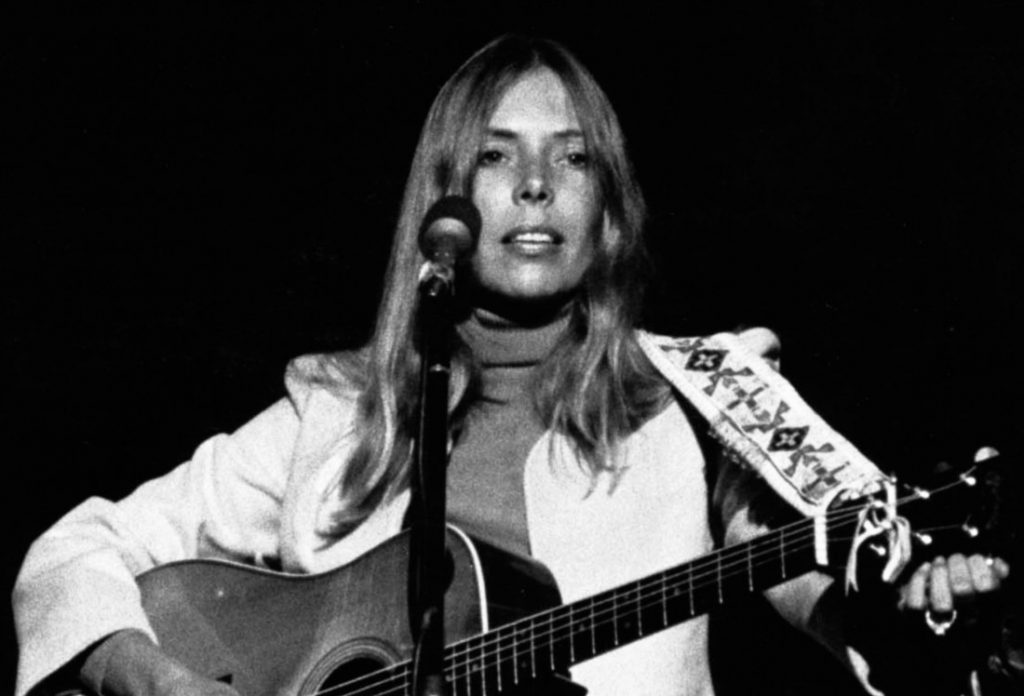
“Oh, I wish I had a river I could skate away on…”
That particular lyric glued itself to my heart the first time I ever heard it, and has remained there ever since. It’s at once poetic, and simple. Evocative, and relatable. Who hasn’t dreamed of a way to glide, beautifully and smoothly, away from what’s hurting us — from what’s hurting inside of us?
Such is the power of Joni Mitchell’s music. And as her smash hit album “Blue” turns 50, I am merely one of an army of people — in particular, women — who find themselves reflecting on the songs, the lyrics and the musical moments from her body of work that have resonated with us.
“Blue,” released June 22, 1971, is the Canadian musician’s fourth album, and deals frequently with the topic of love — both having it, and losing it. (The songs that comprise “Blue” were mostly written after her breakup from Graham Nash, and during her relationship with James Taylor, two other prominent singers.) But experiences and emotions like loss, frustration and yearning are explored as well — and they extend well beyond the realm of romantic involvement.
In fact, Mitchell was said to have been thinking of both of her grandmothers when she left Nash to travel to Europe in search of her own path. One of them was a poet and musician who felt so trapped in life she once “kicked the kitchen door off of the hinges on the farm.” The other reportedly cried to herself as a teenager “because she wanted a piano and [told herself to] ‘dry your eyes, you silly girl, you’ll never have a piano.’”
These anecdotes, shared in a 2003 documentary, made Mitchell think that “maybe I am the one that got the gene that has to make it happen for these two women.”
Now, 50 years on, the woman-inspired journey she embarked upon — and the music she created following it — continue to influence whole generations of women. It even teaches them new things about themselves, as fellow singer-songwriter Brandi Carlile revealed to The New York Times. Carlile admits to being put off by Mitchell’s lyrics at first, taking issue with what she perceived as emotionally weak sentiments. It wasn’t until she fully sat with the album that she realized, “I was having to re-evaluate what I thought ‘feminine’ meant. And that being tough is being vulnerable and expressing yourself, even things that are really hard to say.”
Opera singer Renee Fleming described Mitchell as “a touchstone my entire adult life.” And she, too, learned to better understand both her womanhood and feminism through “Blue” and other works. “Joni Mitchell was just living it. She didn’t talk about it. She just lived it. You felt that she went her own way.”
Others found salvation, as well as themselves, through “Blue.” Take singer Chaka Khan, for example. “On the road, many times I contemplated just throwing this [expletive] in the pail. Once or twice, I thought about ending it all — I was that depressed,” she admitted to the Times. “And she pulled me back.”
“Blue” will surely be passed down to future generations of women — in fact, several of those asked by the Times to reflect upon the album’s influence are younger artists, like the members of the band Haim and singer Weyes Blood. Through them — through us — it will continue to live, breathe and teach.
And as for me, I’ll continue wishing I could teach my feet to fly, wanting to soar the way Mitchell’s voice does on that particular line.



